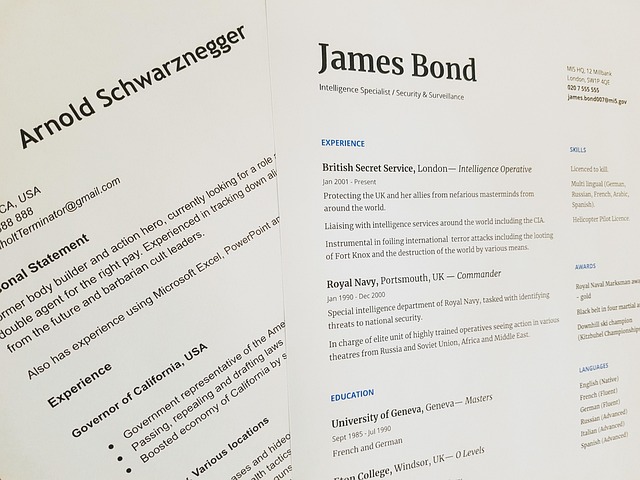Guide to Understanding Foreign Recruitment Agencies in the Netherlands
Finding the right path to work legally in the Netherlands as a foreign job seeker can involve several moving parts. Recruitment agencies that specialize in international placements often serve as a bridge between skilled workers and employers facing talent shortages across various industries. This overview looks at how these agencies typically operate, the kinds of jobs that are commonly available, and key points individuals consider when evaluating potential opportunities. Understanding these dynamics can offer helpful context before taking the next steps.

How Does the International Recruitment Process Work?
The international recruitment process in the Netherlands typically begins with agencies identifying labor market gaps across various sectors. These specialized firms maintain databases of qualified international candidates while simultaneously building relationships with Dutch employers who need foreign talent. The process usually involves initial screening, skills assessment, and matching candidates with suitable positions based on qualifications and experience.
Most agencies handle multiple aspects of the placement process, including preliminary interviews, document verification, and coordination with employers. They often provide guidance on required certifications or additional training that might be needed for specific roles. The timeline can vary significantly depending on the industry, with some placements taking weeks while others may require several months of preparation and processing.
What Are Legal Work Permits and Documentation Requirements?
Legal work permits form the foundation of legitimate employment in the Netherlands for non-EU citizens. The most common permit types include the highly skilled migrant permit, seasonal work permits, and combined residence and work permits. Each category has specific eligibility criteria, salary thresholds, and application procedures that must be followed precisely.
Recruitment agencies typically assist with permit applications, though the ultimate responsibility lies with the employer who must act as the sponsor. Required documentation usually includes educational credentials, professional certifications, criminal background checks, and medical examinations. The processing time for permits can range from several weeks to a few months, depending on the permit type and individual circumstances.
Can You Qualify for Skilled Migration Programs?
Skilled migration programs in the Netherlands target professionals in high-demand sectors such as technology, healthcare, engineering, and research. The highly skilled migrant scheme is one of the most popular pathways, requiring candidates to meet minimum salary thresholds and work for recognized sponsoring employers. These programs often provide faster processing times and additional benefits for qualifying individuals.
Eligibility typically depends on factors such as educational background, professional experience, salary level, and the employer’s recognition status with Dutch immigration authorities. Some programs also consider age, language skills, and previous experience in the Netherlands or other EU countries. Recruitment agencies specializing in skilled migration can help assess eligibility and identify suitable opportunities within these programs.
How to Obtain a Work Visa Netherlands Successfully?
Obtaining a work visa netherlands requires careful preparation and attention to detail throughout the application process. The visa type depends on the intended length of stay, with short-term visas for temporary assignments and long-term permits for permanent positions. Most work visas require a confirmed job offer from a Dutch employer before the application can be submitted.
The application process typically involves submitting forms to Dutch consulates or immigration services, along with supporting documentation and fees. Processing times vary by nationality and visa type, with some applications requiring additional interviews or document verification. Recruitment agencies often provide guidance on visa requirements and help coordinate timing between job offers and visa approvals.
Recruitment Agency Services and Fee Structures
Several established recruitment agencies operate in the Netherlands, each offering different service levels and fee structures. Understanding these costs helps job seekers make informed decisions about which agencies to work with.
| Agency Type | Services Offered | Typical Fee Structure |
|---|---|---|
| Full-Service International | Complete placement, visa support, relocation assistance | 15-25% of first year salary |
| Specialized Sector Agencies | Industry-specific placements, skills matching | 10-20% of annual salary |
| Temporary Staffing | Short-term contracts, flexible positions | 5-15% markup on hourly rates |
| Executive Search Firms | Senior-level positions, executive placements | 20-35% of first year salary |
Prices, rates, or cost estimates mentioned in this article are based on the latest available information but may change over time. Independent research is advised before making financial decisions.
What to Expect During the Application Timeline?
The complete process from initial application to starting work typically takes between two to six months, depending on various factors including permit type, nationality, and job complexity. Initial screening and interviews with recruitment agencies usually occur within the first few weeks, followed by employer interviews and job offers.
Once a job offer is secured, the permit application process begins, which can take four to eight weeks for standard applications. During this time, candidates often need to complete additional requirements such as medical examinations, document translations, or professional certifications. Coordination between all parties is essential to ensure smooth processing and avoid delays that could affect start dates.
Understanding how foreign recruitment agencies operate in the Netherlands provides valuable insight for international job seekers considering employment opportunities. These agencies serve as important intermediaries in a complex process involving multiple legal requirements, documentation procedures, and coordination between various parties. Success in securing employment through these channels typically depends on thorough preparation, realistic expectations about timelines, and careful selection of reputable agencies that match individual career goals and circumstances.




